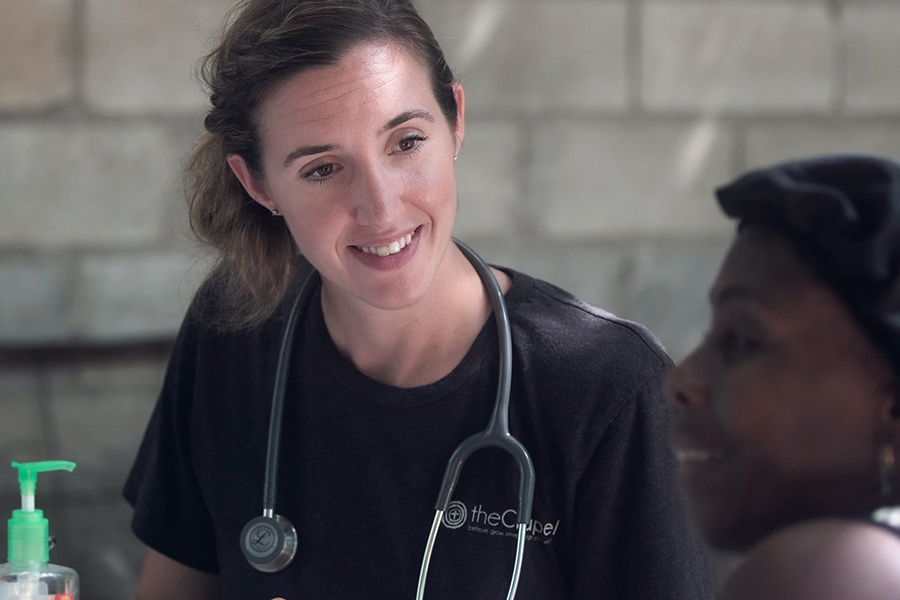雙語新聞播報(September 4)
chinadaily.com.cn 2023-09-04 16:10

> What passing gas can say about your health
經常放屁特別臭需要警惕嗎?

Dr. Mark Corkins, division chief of pediatric gastroenterology at the University of Tennessee Health Science Center, said, “There are two sources of ‘gas,’ and not all gas is gas. Part of what we pass is air. We all swallow some air, and some people swallow a lot of air. Now that seems to be odorless.”
田納西大學健康科學中心兒童胃腸科主任馬克?科爾金斯稱,“‘屁’有兩種來源,一部分是空氣。人們會‘吃下’一些空氣,這些經腸道排出的空氣是沒有氣味的。”
Real gas, on the other hand, is primarily the byproduct of the fermentation of food in the colon, said Corkins, who is also a professor of pediatrics. “Our colon has (billions of) bacteria living in it. … If we don’t digest (food), the bacteria will.”
科爾金斯稱,真正的“屁”主要是食物在結腸中發酵的氣體。“人的結腸里有(數十億)細菌……這些細菌會幫助消化未消化的食物。”
Some odors are more pungent than others for these reasons, experts said, but there aren’t any smells that are red flags.
專家稱,由于以上原因,有些“屁”聞起來更臭,但氣味不是危險信號。
Gas isn’t as much of an indicator of gut health as bowel movement frequency and texture.
排便頻率和質地是衡量腸道健康的指標,放屁卻不是。
But dietary choices can lead to more or less gas.
但飲食選擇可能會導致放屁多或放屁少。
Gut flora are important because they help the body make vitamins and produce some of the short chain fatty acids that feed our colon lining, so a little gas (from those processes) is good, Corkins said. “Otherwise, we’re not feeding our flora, which actually is a symbiotic relationship,” he added.
腸道菌群對健康很重要,有助于身體合成維生素,并產生一些短鏈脂肪酸,為結腸內壁提供營養,所以(在這些過程中)腸道產生適當氣體有益健康。
But what can especially lead to gas, or excessive amounts of it, is eating foods that are more difficult to digest and therefore more likely to ferment, experts said.
但專家表示,食用不易消化的食物容易導致排氣或過量排氣,因為這些食物在腸道內更易發酵。
The old classic is beans, and there’s a protein in beans that tends to be difficult to digest.
最常見的易導致脹氣的食物就是豆制品,豆類中含有一種不易消化的蛋白質。
“The other thing is making sure that your bowel habits are regular,” said Dr. William Chey, a professor of gastroenterology at the University of Michigan. “Individuals that have constipation are much more prone to getting bloating and flatulence. The reason for that is, if things move very slowly through the GI tract, they have more time to interact with the bacteria in the GI tract, particularly the colon. And that’s going to produce more gas.”
杰說:“保持規律排便也很關鍵。便秘的人更容易腹脹和脹氣。如果食物在胃腸道中移動得很慢,就有更多的時間與胃腸道中的細菌作用,尤其是結腸。這會導致腸道產生更多氣體。”
> Childhood amnesia: Why can't we remember the early years?
大腦會刪除2歲前的記憶?網友:那些糗事,忘記也罷……

Childhood amnesia is the inability of adults to retrieve episodic memories (memories of situations or events) before the age of 2 to 4 years.
“童年失憶癥”指的是成年人無法回憶起自己2歲或者4歲之前的情景記憶;
It may also refer to the scarcity or fragmentation of memories recollected from early childhood, particularly occurring between age 2 and 6.
也指在2-6歲之間,童年早期記憶的碎片化。
Childhood amnesia is a normal part of brain development. Episodic memories involve the hippocampus, a part of the brain found in the temporal lobe, which is not fully developed at birth. The hippocampus should be ready at about the age of 4.
童年失憶癥是大腦發育的正常現象,情景記憶涉及海馬體,是大腦顳葉的一部分。而嬰兒剛出生時,海馬體尚未發育完全,會慢慢隨著嬰兒長大逐步發育,在四歲左右漸趨成熟。
Memories that are not repeatedly re-told and strengthened become lost over time.
沒有被反復講述和強化的記憶會隨著時間的推移而消失。
For a long time, scientists thought childhood amnesia occurred because the brains of young children simply couldn't form lasting memories of specific events.
長期以來,科學家們認為童年失憶癥是因為幼兒的大腦根本無法形成對特定事件的持久記憶。
More studies provided evidence that at some point in childhood, people lose access to their early memories.
更多的研究提供了證據,表明在童年的某個時候,人們失去了對早期記憶的訪問。
And they found that children as old as 7 could still recall more than 60 percent of those early events, while children who were 8 or 9 recalled less than 40 percent.
研究者們發現,7歲的孩子仍然可以回憶起自己3歲時期60%以上的事件,而8、9歲的孩子只能回憶起不到40%。
On average, this fragmented period wanes off at around 4.7 years.
平均而言,童年失憶癥的覆蓋范圍在4.7年左右。
Around 5-6 years of age in particular is thought to be when autobiographical memory seems to stabilize and be on par with adults.
當兒童到了5、6歲之后,他們的自傳記憶逐漸穩定,幾乎與成年人相當。
Find more audio news on the China Daily App.

















 英語點津微信
英語點津微信 雙語小程序
雙語小程序